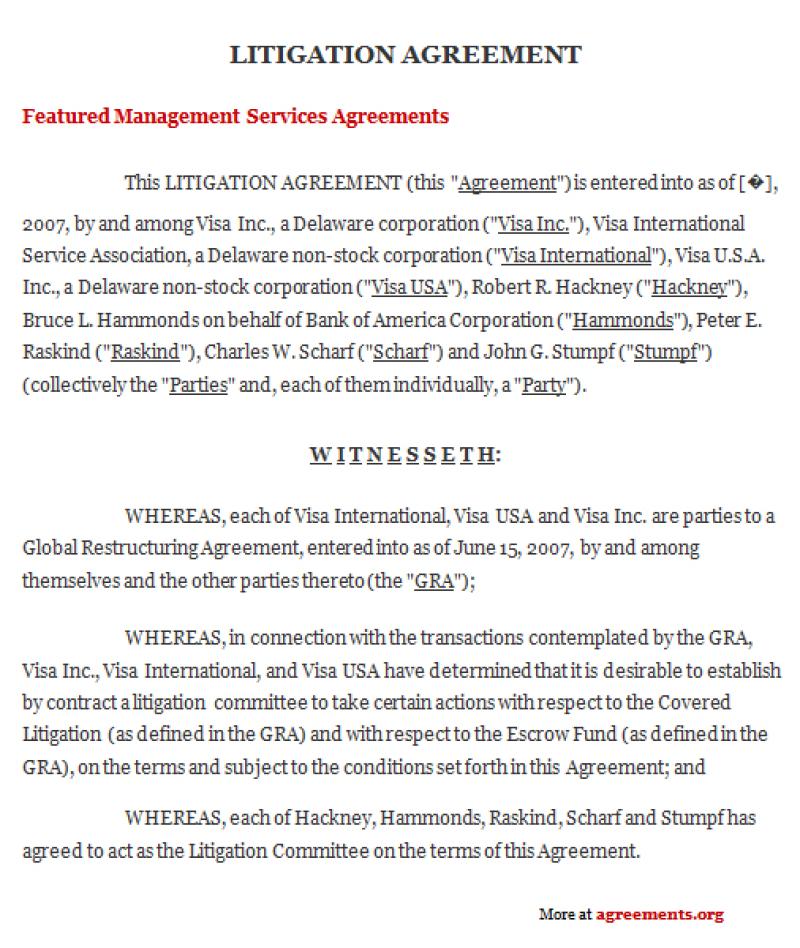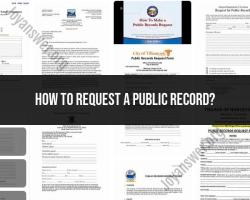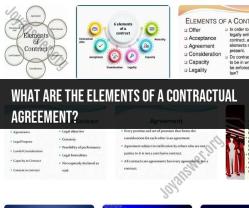What is the format of a sample engagement agreement for litigation?
The format of a sample engagement agreement for litigation can vary, but it typically includes key elements to define the terms, scope, and expectations of the legal representation. Below is an overview of the general format for a sample engagement agreement for litigation:
1. Introduction:
Title:
- Use a clear and descriptive title such as "Engagement Agreement for Legal Representation in Litigation."
Parties:
- Identify the parties involved - the client (individual or entity) and the law firm or attorney.
2. Recitals:
- Provide a brief introduction or background, outlining the reasons for engaging in legal representation and the purpose of the agreement.
3. Scope of Representation:
- Clearly define the scope of legal services to be provided. This section may include:
- A description of the specific legal matter or case.
- The legal issues to be addressed.
- Any limitations on the scope of representation.
4. Responsibilities of the Attorney:
- Outline the attorney's obligations and responsibilities, which may include:
- Diligent and competent representation.
- Regular communication with the client.
- Timely filing of documents.
- Compliance with legal and ethical standards.
5. Responsibilities of the Client:
- Define the client's responsibilities, which may include:
- Providing accurate and complete information.
- Cooperating with the attorney.
- Timely payment of fees and costs.
6. Fees and Billing:
- Clearly specify the fee structure, including:
- Hourly rates, flat fees, or contingency fees.
- Costs and expenses covered by the client.
- Billing frequency and payment terms.
7. Retainer (if applicable):
- If a retainer is required, detail the amount, purpose, and how it will be applied against fees.
8. Termination Clause:
- Include conditions under which either party can terminate the representation. This may include non-payment, non-cooperation, or other relevant factors.
9. Confidentiality:
- Address confidentiality obligations and the attorney-client privilege.
10. Conflict of Interest:
- Address potential conflicts of interest and confirm that the attorney has no conflicts in representing the client.
11. Governing Law:
- Specify the jurisdiction and governing law that will apply to the agreement.
12. Dispute Resolution:
- Outline the process for resolving disputes, which may include mediation or arbitration.
13. Notices:
- Provide information on how notices and communications should be delivered between the parties.
14. Miscellaneous Provisions:
- Include any additional clauses, such as force majeure, amendments, or waiver provisions.
15. Signatures:
- Include signature blocks for both the client and the attorney to indicate their agreement to the terms.
16. Effective Date:
- Clearly state the effective date of the agreement.
17. Attachments (if any):
- Attach any relevant exhibits, addendums, or appendices to provide additional details.
18. Review and Consultation:
- Encourage the client to review the agreement carefully and consult with an independent attorney if necessary.
19. Conclusion:
- Include a conclusion or closing statement expressing the parties' understanding and acceptance of the terms.
Important Notes:
- Language should be clear, concise, and easily understood by the client.
- Use headings, subheadings, and bullet points to enhance readability.
- Tailor the agreement to the specific circumstances of the litigation.
It's important to note that legal documents, including engagement agreements, can be complex and may require customization based on jurisdictional regulations and specific case details. Consulting with legal professionals to draft or review such agreements is advisable to ensure accuracy and compliance with applicable laws.
What is the format of a sample engagement agreement for litigation?
A sample engagement agreement for litigation typically includes the following sections:
- Introduction: This section identifies the parties to the agreement and the purpose of the agreement.
- Scope of representation: This section describes the specific legal services that the attorney will provide.
- Fees and expenses: This section specifies the attorney's fees and expenses, and the client's responsibility for paying them.
- Responsibilities of the client: This section outlines the client's responsibilities, such as providing the attorney with accurate information and responding to the attorney's requests in a timely manner.
- Communication: This section describes how the attorney will communicate with the client and how the client can contact the attorney.
- Termination: This section describes how the attorney-client relationship can be terminated.
- Dispute resolution: This section describes how disputes arising out of the engagement agreement will be resolved.
How are engagement agreements structured for legal representation in litigation, and what clauses are typically included?
Engagement agreements for legal representation in litigation are typically structured to protect the interests of both the client and the attorney. The following clauses are typically included:
- Scope of representation: This clause clearly defines the specific legal services that the attorney will provide. It is important to note that the scope of representation may change over time as the litigation progresses.
- Fees and expenses: This clause specifies the attorney's fees and expenses, and the client's responsibility for paying them. Attorney's fees are typically charged on an hourly basis, but may also be charged on a contingency fee basis in certain cases.
- Responsibilities of the client: This clause outlines the client's responsibilities, such as providing the attorney with accurate information and responding to the attorney's requests in a timely manner. The client also has a responsibility to cooperate with the attorney and to keep the attorney informed of any developments in the case.
- Communication: This clause describes how the attorney will communicate with the client and how the client can contact the attorney. It is important to have a clear understanding of how and when the attorney will communicate with you.
- Termination: This clause describes how the attorney-client relationship can be terminated. Either party may terminate the relationship at any time for any reason, but the client may be liable for the attorney's fees and expenses incurred up to the point of termination.
- Dispute resolution: This clause describes how disputes arising out of the engagement agreement will be resolved. Most engagement agreements will include a mediation or arbitration clause to resolve any disputes without resorting to litigation.
Are there legal standards or requirements that should be addressed in a sample engagement agreement for litigation?
Yes, there are a number of legal standards and requirements that should be addressed in a sample engagement agreement for litigation. These include:
- Compliance with the law: The engagement agreement must comply with all applicable laws and regulations.
- Disclosure of conflicts of interest: The attorney must disclose any potential conflicts of interest to the client.
- Reasonableness of fees: The attorney's fees must be reasonable.
- Informed consent: The client must give informed consent to the engagement agreement. This means that the client must understand the terms of the agreement and the scope of representation before signing the agreement.
It is important to have an attorney review any engagement agreement before signing it. This will help to ensure that the agreement is fair and reasonable, and that it complies with all applicable laws and regulations.












